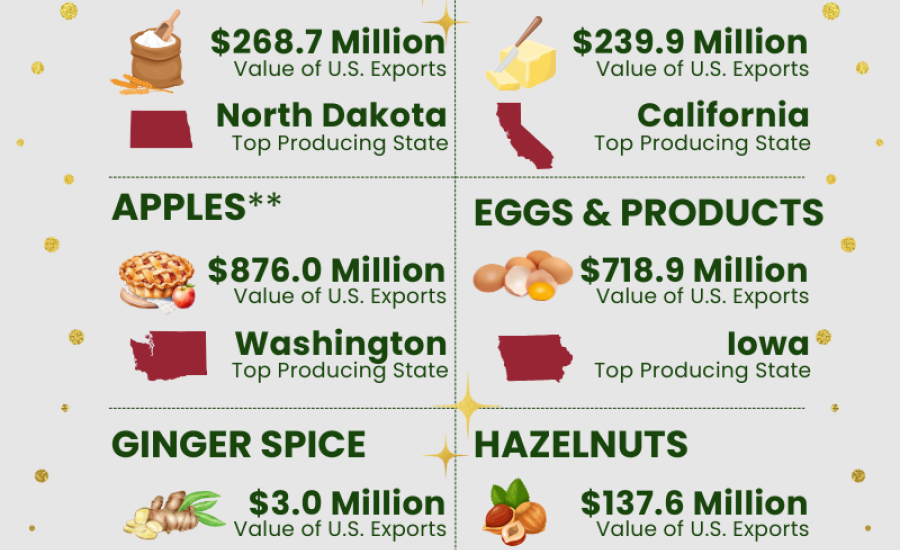Browse Data and Analysis
Filter
Search Data and Analysis
- 8 results found
- (-) Processed Fruit
- Clear all
Since USDA first established a stand-alone mission area focusing on trade and international affairs in 2017, USDA’s Trade and Foreign Agricultural Affairs and the Foreign Agricultural Service, have made significant trade policy advances to support U.S. agriculture. This series of commodity fact sheets highlights the many recent trade policy advances achieved by USDA.
Thanks to consumers' growing preference for healthy food and earlier successful marketing of nuts and dried fruit products across the country, China's consumption and demand for nuts and dried fruit has exploded over the past few years.
Infographic discussing holiday baking as it relates to 2022 U.S. agricultural export totals and top producing states.
The U.S.-Japan Trade Agreement (USJTA) entered Year 5 of the agreement implementation on April 1, 2023. This report is one in a series of product briefs highlighting the tariff benefits for specific commodities and products from Year 5 (2023) to Year 7 (2025) of the Agreement.
The U.S.-Japan Trade Agreement (USJTA) entered Year 5 of the agreement implementation on April 1, 2023. This report is one in a series of product briefs highlighting the tariff benefits for specific commodities and products from Year 5 (2023) to Year 7 (2025) of the Agreement.
The U.S.-Japan Trade Agreement (USJTA) entered Year 5 of the agreement implementation on April 1, 2023. This report is one in a series of product briefs highlighting the tariff benefits for specific commodities and products from Year 5 (2023) to Year 7 (2025) of the Agreement.
The following report contains an unofficial translation of the 2005 Hygienic Standard for Dried Fruits (GB16325-2005). This unofficial translation is intended for informational purposes. The final standard has not changed since going into effect on October 1, 2005.
Japan has a well-developed food retail market that demands high-quality, high-value agricultural and food products. Despite reduced economic activity during the COVID-19 pandemic, trade data show that agricultural imports have remained resilient.

